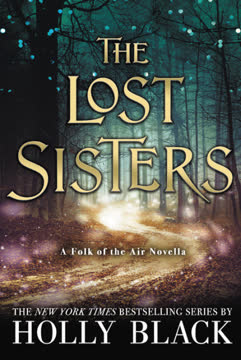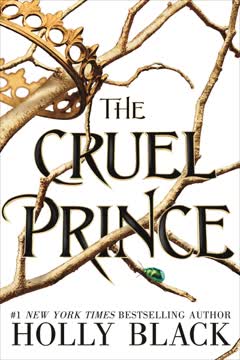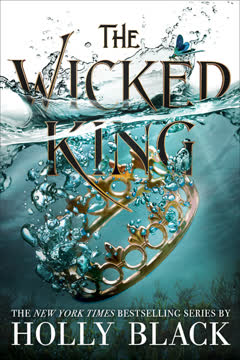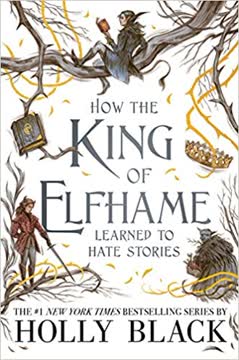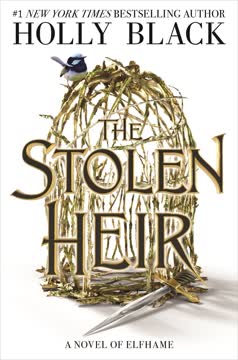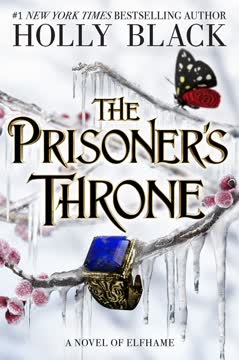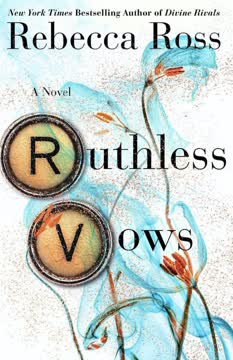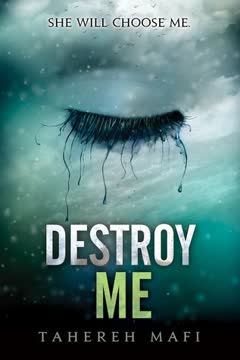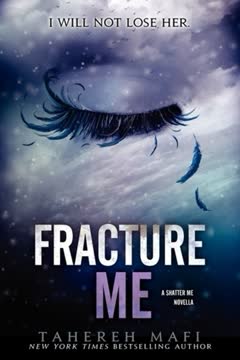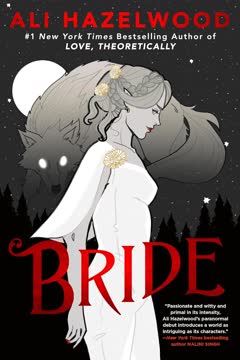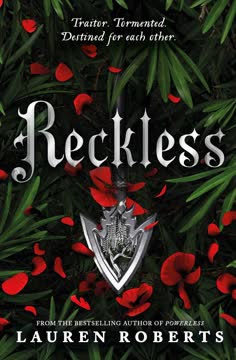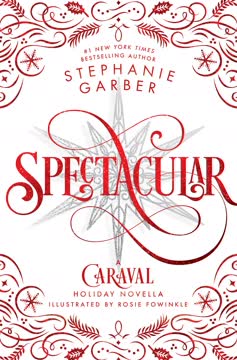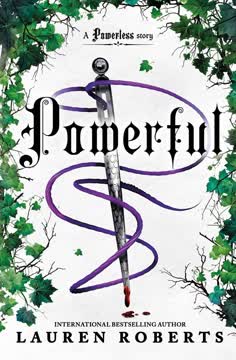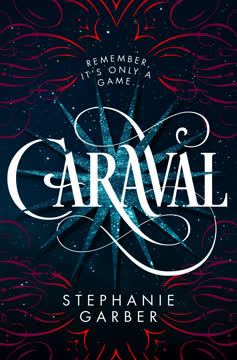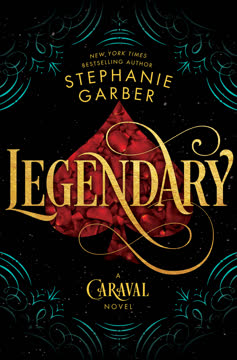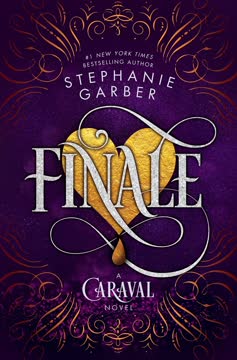Plot Summary
Fairy Tales and Warnings
The story opens with a retelling of "Mr. Fox," a dark fairy tale about boldness, obedience, and the dangers of trusting the wrong people. Taryn, the narrator, reflects on the moral ambiguity of fairy tales and how they shape her understanding of the world. She questions the value of being "good" or "bold," recognizing that even the obedient can suffer. This sets the tone for her confession—a plea for forgiveness from her twin, Jude. Taryn's voice is raw, self-aware, and haunted by the stories that have shaped her, hinting that her own tale is one of both love and horror, and that the line between victim and villain is often blurred.
Three Sisters, One Fate
Taryn, Jude, and Vivienne are thrust into Faerie after their parents' murder by Madoc, a faerie general and Vivi's biological father. The twins, mortal in a world of magic, struggle to adapt, while Vivi, half-fae, is torn between worlds. Their shared trauma forges a bond, but also sows seeds of difference. Taryn's longing for acceptance and Jude's hunger for power begin to diverge. The sisters' fate is shaped by their mother's past mistakes and the harsh lessons of Faerie, where survival demands both cunning and compromise. The sense of being "lost" sisters—orphans in a dangerous land—haunts every choice they make.
The Note in the Rucksack
Taryn receives a mysterious note from Locke, a faerie boy with fox-red hair and a reputation for charm. The note is an invitation to meet, sparking hope and fear in Taryn's heart. She is desperate for belonging and validation, and Locke's attention feels like a fairy tale come true. Yet, she hesitates, aware of the cruelty of the Folk and the risk of humiliation. Seeking advice from Vivi, Taryn is reminded of their mother's warnings: be kind, but not naïve. Ultimately, Taryn chooses to respond, setting in motion a chain of events that will test her loyalty, courage, and self-worth.
Secrets and Swords
Taryn and Jude, once inseparable twins, begin to keep secrets from each other. Jude immerses herself in swordplay, determined to carve out a place in Faerie through strength, while Taryn seeks acceptance through love and compliance. Their differences, once trivial, become chasms. Taryn's secret meetings with Locke and Jude's relentless pursuit of knighthood create a rift. Both sisters hide their vulnerabilities, pretending to be fine while silently suffering. The pressure to survive in Faerie's treacherous court forces them to make choices that will ultimately pit them against each other.
Locke's Midnight Visits
Locke visits Taryn under cover of night, and their clandestine romance deepens. Taryn is swept up in the thrill of being chosen, believing she can finally be the heroine of her own story. Locke's charm and attention make her feel special, but his request for secrecy plants seeds of doubt. Taryn's happiness is fragile, dependent on Locke's whims and the constant fear of discovery. She confides in him, even about Jude, not realizing how her trust will be used. The intoxicating blend of love and danger blinds Taryn to the warning signs around her.
Games of Cruelty
The court's cruelty intensifies as Prince Cardan and his friends, including Locke, target the mortal sisters. Taryn and Jude become pawns in their sadistic games, enduring humiliation and violence. Taryn's relationship with Locke becomes entangled in these power plays, as he manipulates perceptions and loyalties. The sisters' bond is tested when Taryn is forced to choose between self-preservation and solidarity. The Folk's amusement comes at the mortals' expense, and the line between love and betrayal blurs. Taryn's longing for acceptance leads her to make choices that hurt both herself and Jude.
River of Betrayal
In a cruel prank, Taryn and Jude are pushed into a river by Cardan's group. Locke, claiming to protect Taryn, orchestrates events so that Jude bears the brunt of the group's malice. Taryn is offered a way out if she betrays her sister, and, desperate and afraid, she takes it. The moment is a crucible of shame and guilt, as Taryn realizes the cost of her choices. The sisters' trust is shattered, and Taryn's complicity in Jude's suffering marks a turning point. The river becomes a symbol of the divide between them—a current of betrayal that cannot be undone.
Sisters Divided
After the river incident, Taryn and Jude struggle to communicate. Both are hurt, but neither can fully articulate their pain. Taryn is consumed by guilt, yet unable to confess the full truth. Jude, exhausted and angry, withdraws. Vivi tries to mediate, but her own desire to escape Faerie complicates matters. The sisters' shared trauma is now a source of division rather than unity. Taryn's jealousy and Jude's defiance feed off each other, making reconciliation seem impossible. The silence between them is heavy with unspoken apologies and unresolved wounds.
The Price of Belonging
Taryn, feeling isolated and desperate to belong, clings to Locke and the promise of love. She is willing to endure humiliation and secrecy if it means being part of Faerie's inner circle. Locke manipulates her, using jealousy and rivalry to keep her off-balance. Taryn's desire to be loved and admired blinds her to the cost of her choices. She begins to understand that in Faerie, love is transactional and power is always at play. The price of belonging is steep—requiring her to sacrifice her own values and, ultimately, her relationship with Jude.
Revels and Jealousy
Locke draws Taryn into Faerie's revels, encouraging her to embrace jealousy and cruelty as part of love's "spice." Taryn is both repulsed and fascinated, realizing that to be truly accepted, she must abandon her mortal qualms. She hurts others, and herself, in pursuit of Locke's approval. The revels become a stage for her transformation, as she learns to wield her own power—however small—within the court's cruel games. Yet, the more she tries to shape her own story, the more she loses sight of who she is. Jealousy becomes both her weapon and her prison.
The Tournament's Fury
The Summer Tournament becomes a battleground for the sisters' diverging paths. Jude, refusing to back down, excels in combat and humiliates Cardan and his friends. Taryn, watching from the sidelines, is torn between pride and fear. Locke's attention shifts to Jude, fueling Taryn's jealousy and insecurity. The aftermath is brutal: Cardan retaliates, and Taryn is forced to confront the consequences of her choices. The tournament exposes the limits of both sisters' strategies—Jude's boldness and Taryn's compliance—and leaves them more isolated than ever.
Bargains and Ultimatums
Desperate to secure her place, Taryn confronts Locke and demands marriage. Locke agrees, but only on three conditions: secrecy until Prince Dain's coronation, unwavering loyalty, and acceptance that the Folk do not love as mortals do. Taryn, blinded by love and ambition, accepts. She believes she can shape her own destiny, but the bargain is fraught with danger. The terms of the deal echo the fairy tales that have haunted her—be bold, but not too bold. Taryn's willingness to sacrifice everything for love sets the stage for further heartbreak and betrayal.
Becoming the Storyteller
Taryn realizes that to survive—and thrive—in Faerie, she must become the shaper of her own story. Inspired by Locke's manipulations and the lessons of fairy tales, she learns to wield narrative as a form of power. She embraces the role of storyteller, using rumor and reputation to carve out a place for herself. Yet, this newfound agency comes at a cost: she must abandon her innocence and accept the darkness within herself. Taryn's transformation is both empowering and tragic, as she becomes complicit in the very cruelty she once feared.
Love, Power, and Pain
Taryn's relationship with Locke becomes a microcosm of Faerie's larger dynamics—love as a game, power as seduction, pain as currency. She is both victim and participant, learning to navigate the shifting allegiances and hidden motives of the court. Her longing for love is inseparable from her hunger for power and recognition. The pain she inflicts and endures becomes a means of survival, but also a source of regret. Taryn's journey is a cautionary tale about the dangers of wanting too much, and the impossibility of escaping the stories we tell ourselves.
The Shape of Forgiveness
The novella ends with Taryn's confession—a letter to Jude, asking for forgiveness. She acknowledges her mistakes, her jealousy, and her complicity in Jude's suffering. Taryn's voice is vulnerable and honest, recognizing that love and loyalty are never simple. She hopes that, as sisters and twins, they can find a way back to each other. The final note is one of longing and uncertainty: Taryn is still practicing her apology, still hoping for absolution, still searching for a way to be both bold and good in a world that punishes both.
Characters
Taryn Duarte
Taryn is Jude's identical twin, a mortal girl struggling to survive in the treacherous world of Faerie. Her deepest desire is to be accepted and loved by the Folk, leading her to make painful compromises and betrayals. Taryn's journey is marked by self-doubt, jealousy, and a longing for validation. She is introspective and self-aware, often questioning her own motives and the stories she tells herself. Her relationship with Locke becomes both her escape and her undoing, as she learns that love in Faerie is fraught with manipulation and pain. Taryn's arc is one of transformation—from passive participant to active storyteller, though not without cost.
Jude Duarte
Jude is Taryn's twin, but her approach to Faerie is the opposite: she seeks power through strength and refuses to be cowed by the Folk's cruelty. Jude's hunger for agency drives her to master swordplay and court politics, often putting her at odds with both her enemies and her sister. She is bold, stubborn, and unafraid to challenge authority, even when it endangers her. Jude's relationship with Taryn is complex—marked by love, rivalry, and mutual misunderstanding. Her pain at Taryn's betrayal is deep, but her resilience is unwavering. Jude embodies the struggle to remain true to oneself in a world that demands compromise.
Locke
Locke is a faerie boy with fox-red hair and a talent for storytelling and seduction. He is both alluring and dangerous, drawing Taryn into a web of secrecy and jealousy. Locke's motives are ambiguous—he delights in games, cruelty, and the emotional turmoil of others. He uses Taryn and Jude as pawns in his own amusements, testing their loyalty and shaping their narratives. Locke's love is conditional and transactional, reflecting the broader dynamics of Faerie. He is a catalyst for Taryn's transformation, but also the source of her greatest pain.
Vivienne (Vivi)
Vivi is the eldest sister, daughter of Madoc and a faerie mother. She is caught between worlds, longing for the mortal realm and resenting Faerie's constraints. Vivi is rebellious, independent, and protective of her sisters, but her own struggles with identity and belonging make her distant at times. She offers Taryn advice and support, but her desire to leave Faerie complicates her relationships. Vivi's love for a mortal girl, Heather, highlights the possibility—and difficulty—of bridging the gap between worlds. She represents the hope of escape, but also the pain of leaving family behind.
Prince Cardan
Cardan is the youngest prince of Elfhame, notorious for his beauty and viciousness. He leads the group that torments Taryn and Jude, delighting in their suffering. Cardan's cruelty masks deeper insecurities and a complex relationship with power. He is both an antagonist and an object of fascination, especially for Jude. Cardan's interactions with the sisters reveal the shifting dynamics of Faerie's court, where alliances are fragile and motives are hidden. His presence is a constant threat, but also a mirror for the sisters' own struggles with agency and desire.
Nicasia
Nicasia is a member of Cardan's inner circle and a former lover of both Cardan and Locke. She is fiercely possessive and quick to anger, especially when she feels threatened by Taryn or Jude. Nicasia's actions are driven by jealousy and a need to maintain her status within the court. She participates in the group's cruelty, targeting the sisters as rivals. Nicasia embodies the dangers of love and rivalry in Faerie, where emotions are weaponized and alliances shift rapidly.
Madoc
Madoc is Vivi's biological father and the adoptive father of Taryn and Jude. As a general in Faerie, he is both protector and oppressor, teaching the girls the harsh realities of their new world. Madoc values strength and cunning, pushing Jude to excel in swordplay while expecting compliance from Taryn. His love is conditional, shaped by Faerie's brutal logic. Madoc's presence looms over the sisters, shaping their choices and their understanding of power.
Heather
Heather is Vivi's mortal girlfriend, unaware of the true nature of Faerie. She represents the possibility of love and acceptance outside the court's cruelty. Heather's innocence and creativity contrast sharply with the manipulations of Faerie, offering a glimpse of a different kind of happiness. Her relationship with Vivi highlights the challenges of bridging worlds and the cost of keeping secrets.
Oriana
Oriana is Madoc's faerie wife and the girls' stepmother. She is strict, cautious, and deeply concerned with appearances and safety. Oriana's rules and warnings are often resented by the sisters, but her motives are rooted in a desire to protect them from Faerie's dangers. She embodies the tension between survival and freedom, and her presence is a constant reminder of the risks the sisters face.
Edir
Edir is a faerie boy Taryn meets at a revel, used by Locke to provoke jealousy. His brief interaction with Taryn highlights her transformation from innocent outsider to participant in Faerie's games. Edir's hurt and confusion serve as a mirror for Taryn's own journey, reminding her—and the reader—of the cost of abandoning one's morals for acceptance.
Plot Devices
Confessional Narrative
The novella is structured as a confessional letter from Taryn to Jude, blending direct address with introspective storytelling. This device creates intimacy and immediacy, allowing readers to experience Taryn's guilt, longing, and rationalizations firsthand. The confessional form blurs the line between justification and remorse, making Taryn both sympathetic and unreliable. It also frames the story as a search for forgiveness, heightening the emotional stakes.
Fairy Tale Allusions
The narrative is rich with references to classic fairy tales, which serve as both inspiration and cautionary tales for the characters. These allusions provide thematic depth, highlighting the dangers of naivety, the complexity of boldness, and the ambiguity of "happily ever after." The use of fairy tales as a lens for understanding Faerie's rules and the sisters' choices adds layers of meaning and foreshadowing.
Duality and Mirrors
The relationship between Taryn and Jude is central, with their twinhood symbolizing both unity and division. Their contrasting approaches to survival—compliance versus defiance—mirror the broader tensions of Faerie. The motif of mirrors and doubles recurs throughout, emphasizing the difficulty of truly knowing oneself or another. This duality is echoed in the shifting alliances and betrayals of the court.
Bargains and Promises
The plot is driven by bargains, oaths, and the consequences of breaking them. Taryn's deal with Locke, the sisters' unspoken agreements, and the court's intricate rules all reflect Faerie's obsession with promises. These devices create tension and foreshadow the inevitable fallout when bargains are broken or misunderstood. The danger of being "too bold" or "too good" is a constant undercurrent.
Unreliable Narration
Taryn's narration is deeply subjective, colored by her emotions and desires. She admits to jealousy, self-doubt, and rationalization, making her both honest and unreliable. This device invites readers to question her version of events and to consider the limits of self-knowledge. The confessional tone encourages empathy, but also skepticism, as Taryn's motives are never entirely clear—even to herself.
Analysis
"The Lost Sisters" reframes the events of "The Cruel Prince" through Taryn's eyes, offering a nuanced exploration of sisterhood, love, and survival in a world where power is everything. Holly Black uses the confessional narrative to interrogate the roles assigned to girls in both fairy tales and real life—obedient, bold, good, or bad—and the impossibility of living up to those ideals. Taryn's journey is a cautionary tale about the dangers of seeking validation from those who wield power, and the ways in which love can be both transformative and destructive. The novella challenges readers to empathize with flawed characters, to recognize the complexity of forgiveness, and to question the stories we tell about ourselves and others. In the end, "The Lost Sisters" is a meditation on agency: the power to shape one's own narrative, even when the cost is high, and the hope that, through honesty and vulnerability, broken bonds can be mended.
Last updated:
Review Summary
The Lost Sisters receives mixed reviews, with an average rating of 3.35/5. Many readers dislike Taryn's character and her justifications, finding her selfish and weak. Some appreciate the novella for providing insight into Taryn's motivations, while others feel it unnecessary. The writing style and world-building are praised. Locke is widely despised as manipulative. Readers express excitement for the next book in the series, despite frustrations with certain characters. Overall, the novella sparks strong emotions and debate among fans.
